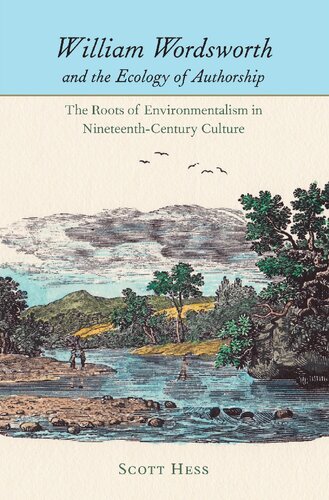

Most ebook files are in PDF format, so you can easily read them using various software such as Foxit Reader or directly on the Google Chrome browser.
Some ebook files are released by publishers in other formats such as .awz, .mobi, .epub, .fb2, etc. You may need to install specific software to read these formats on mobile/PC, such as Calibre.
Please read the tutorial at this link: https://ebookbell.com/faq
We offer FREE conversion to the popular formats you request; however, this may take some time. Therefore, right after payment, please email us, and we will try to provide the service as quickly as possible.
For some exceptional file formats or broken links (if any), please refrain from opening any disputes. Instead, email us first, and we will try to assist within a maximum of 6 hours.
EbookBell Team

4.4
72 reviewsIn William Wordsworth and the Ecology of Authorship, Scott Hess explores Wordsworth’s defining role in establishing what he designates as "the ecology of authorship": a primarily middle-class, nineteenth-century conception of nature associated with aesthetics, high culture, individualism, and nation. Instead of viewing Wordsworth as an early ecologist, Hess places him within a context that is largely cultural and aesthetic. The supposedly universal Wordsworthian vision of nature, Hess argues, was in this sense specifically male, middle-class, professional, and culturally elite―factors that continue to shape the environmental movement today.